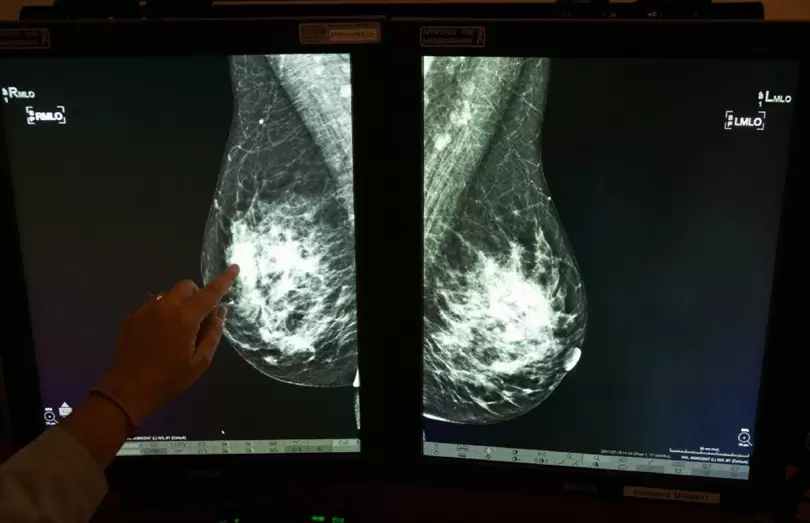One in eight women will get breast cancer at some point. More accurate diagnostic tools are sorely needed.
A diagnosis of breast cancer is news no one wants to hear, but if it does come, you want it to be accurate.
Unfortunately the current primary method of detection via mammogram — a scan of the breast that’s then examined by a radiologist — can result in a false diagnosis of cancer for many women. For others, it misses the cancer altogether.
Google’s Health division has spent the past few years trying to solve, via artificial intelligence, the problem of inaccurate diagnoses. On Wednesday, the company together with its subsidiary Deepmind, Cancer Research UK Imperial Centre, Northwestern University and Royal Surrey County Hospital published a paper in the journal Nature outlining the success of its research so far.
In the paper, researchers detail the successful results of an AI model able to identify breast cancer in mammograms missed by radiologists when tested against scans of over 25,000 women from the UK and over 3,000 women from the US. The AI, which was trained on anonymized mammograms, was also able to reduce the number of false diagnoses of breast cancer in healthy women.
Dominic King, UK lead at Google Health, said in a statement that the results indicated his team is well on its way to developing a tool that can detect breast cancer with greater accuracy. “Further testing, clinical validation and regulatory approvals are required before this could start making a difference for patients, but we’re committed to working with our partners towards this goal,” he said.
If the research continues to show success, the impact on women around the world could be profound. Breast cancer is the most common type of cancer occurring in women globally, and will develop in around one in eight women in the UK and US at some point, according to the NHS and American Cancer Society.
Mammography is the most common tool used to diagnose cancer, but radiologists miss one in five breast cancers. On the flip side, 50% of women who attend screenings over the course of 10 years in the US will receive a false diagnosis.
In early testing, Google’s AI caught cancers missed by radiologists, but there were also some cases in which it missed cancer that was caught by radiologists, showing it to be fallible in some instances.
The researchers suggest that in the future the AI could work in tandem with medical professionals to prevent breast cancer from being missed and to avoid healthy women being subject to invasive biopsies and the stress of believing they may have cancer.
This could eliminate the need for double screening by radiologists, and also provide an initial real-time indication of whether cancer is present during a scan.
“While this is exciting, early-stage research, validation in future trials is needed to better understand how models like these can be effectively integrated into clinical practice,” said Northwestern study co-author Dr. Mozziyar Etemadi in a statement.
“In some examples, the human outperforms the AI and in others, it’s the opposite. But the ultimate goal will be to find the best way to combine the two — the magic of the human brain isn’t going anywhere any time soon.”













![Hotstar Premium Cookies 2019 [*100% Working & Daily Updated*] Hotstar Premium Cookies 2019 [*100% Working & Daily Updated*]](https://tahav.com/wp-content/uploads/2019/11/Hotstar-Premium-Cookies-Free-100x70.jpg)



